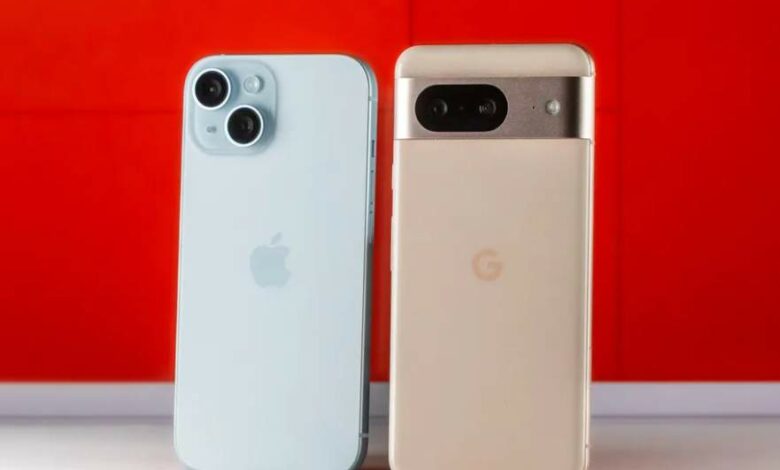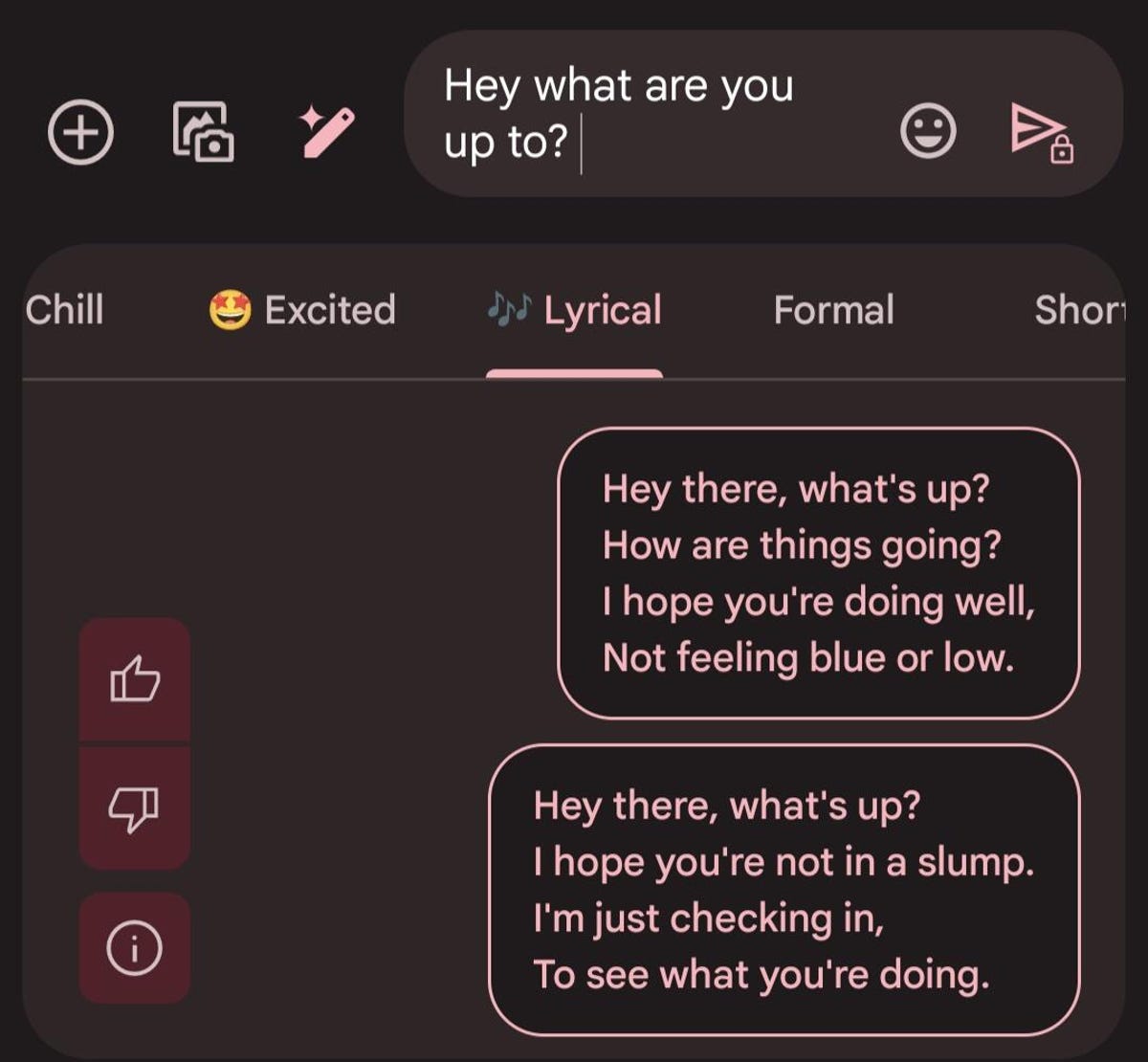AI Is Coming for Your Phone in a Big Way

The smartphone is about to evolve in a big way. For years, industry leaders pegged the arrival of 5G and foldable displays as being the technological advancements that would mark a turning point for the smartphone.
Now in 2023, that excitement has shifted to generative AI, a technology that moguls like Microsoft co-founder Bill Gates and Alphabet CEO Sundar Pichai believe could be as monumental as the dawn of the smartphone and the internet itself.
Generative artificial intelligence, or AI that can create new content, engulfed the tech world this year, shaping the trajectory of new products from Alphabet’s Google, Microsoft, Instagram and Facebook owner Meta, and other major tech companies. In the last quarter of 2023, we’re getting a better idea of how that shift is extending to the smartphone.
AI was at the center of Google’s Pixel 8 launch earlier this month as the company flaunted how its algorithms can pick out the best facial expressions in batches of group photos and easily paste them into a different image. The next smartphone processor from leading mobile chipmaker Qualcomm is designed to speed up AI processing tasks, as the company detailed during its Snapdragon Summit in late October. And Apple is said to be developing a bevy of new features for the iPhone and other products that lean on AI.
“AI is the future of the smartphone experience,” Alex Katouzian, senior vice president and general manager of Qualcomm’s mobile, compute and XR division, said during the company’s event. “And when it comes to mobile technology, it’s what we’ve been building toward for over a decade.”
ChatGPT and new AI-powered search tools from Microsoft and Google may have been the jumping-off point for generative AI in late 2022 and the first half of 2023. But it didn’t take long for the tech to impact the direction of current and future smartphones. AI isn’t new to mobile devices; features like voice dictation, language translation and facial recognition already leverage the technology. Apple’s iPhones, for example, have had a neural engine for handling machine learning-related tasks since 2017 starting with the iPhone X and iPhone 8 generation.
Generative AI is different. It’s not necessarily about AI working passively to detect a person in a photo or unlock your phone as soon as you raise it to your face. Instead, it enables use cases that feel new, whether that’s generating fresh wallpapers on demand or adjusting someone’s expression in a photo.
“It’s really about giving users control over the use of AI and how they want to use it, how they want to apply it to their daily lives,” said Subhashish Dasgupta of analytics firm Kantar, who specializes in the technology and health industries.
Google’s Pixel 8 and 8 Pro are the biggest examples of this yet. While both phones include routine upgrades like a new processor and slightly improved camera hardware, it’s the phones’ new AI-powered tricks that make them stand out.
A photo editing feature called Best Take can analyze group selfies you’ve recently snapped and swap facial expressions between images. In other words, Google’s AI can create the perfect photo in which everyone was smiling — even if that moment never happened.
Magic Editor similarly uses AI to let you manipulate photos in myriad ways: You can make yourself larger or smaller, create the illusion that you’re jumping superhumanly high, or even replace the ground itself.
Those are just the latest examples of how Google is trying to give AI a more prominent presence in our phones. Another feature, called Magic Compose, which Google announced at its developer conference in May, uses generative AI to craft suggested responses to text messages or rewrite responses in a different tone within the company’s messaging app. Google’s AI wallpaper creator can conjure up new backgrounds for your phone from scratch based on prompts.

In 2024 and beyond, AI is poised to play an even greater role in our smartphones. Qualcomm, which creates chips that power phones from companies like Samsung, Xiaomi and OnePlus, clearly had AI in mind when developing its new Snapdragon 8 Gen 3 mobile processor. Qualcomm CEO Cristiano Amon showcased the company’s vision for how AI will change smartphones at its Snapdragon Summit in Hawaii on Oct. 24.
The chipmaker sees AI as being another layer that runs alongside the phone’s operating system and apps that can understand voice, text and image inputs and provide suggestions. That’s much different from the virtual assistants we’ve come to know over the last decade, like Apple’s Siri, Amazon’s Alexa and the Google Assistant. Rather than thinking about AI at the individual feature level, Qualcomm sees it as being a fundamental part of your phone’s daily operations in the future.
“It’s really kind of voice assistants 2.0,” said Luke Pearce, a senior analyst at tech research and advisory firm CCS Insight. “And it’s much more conversational, it’s much more natural.”




